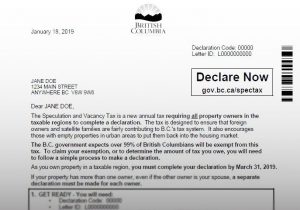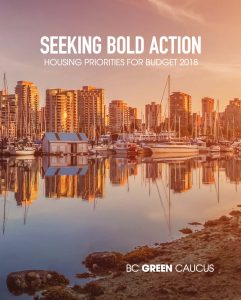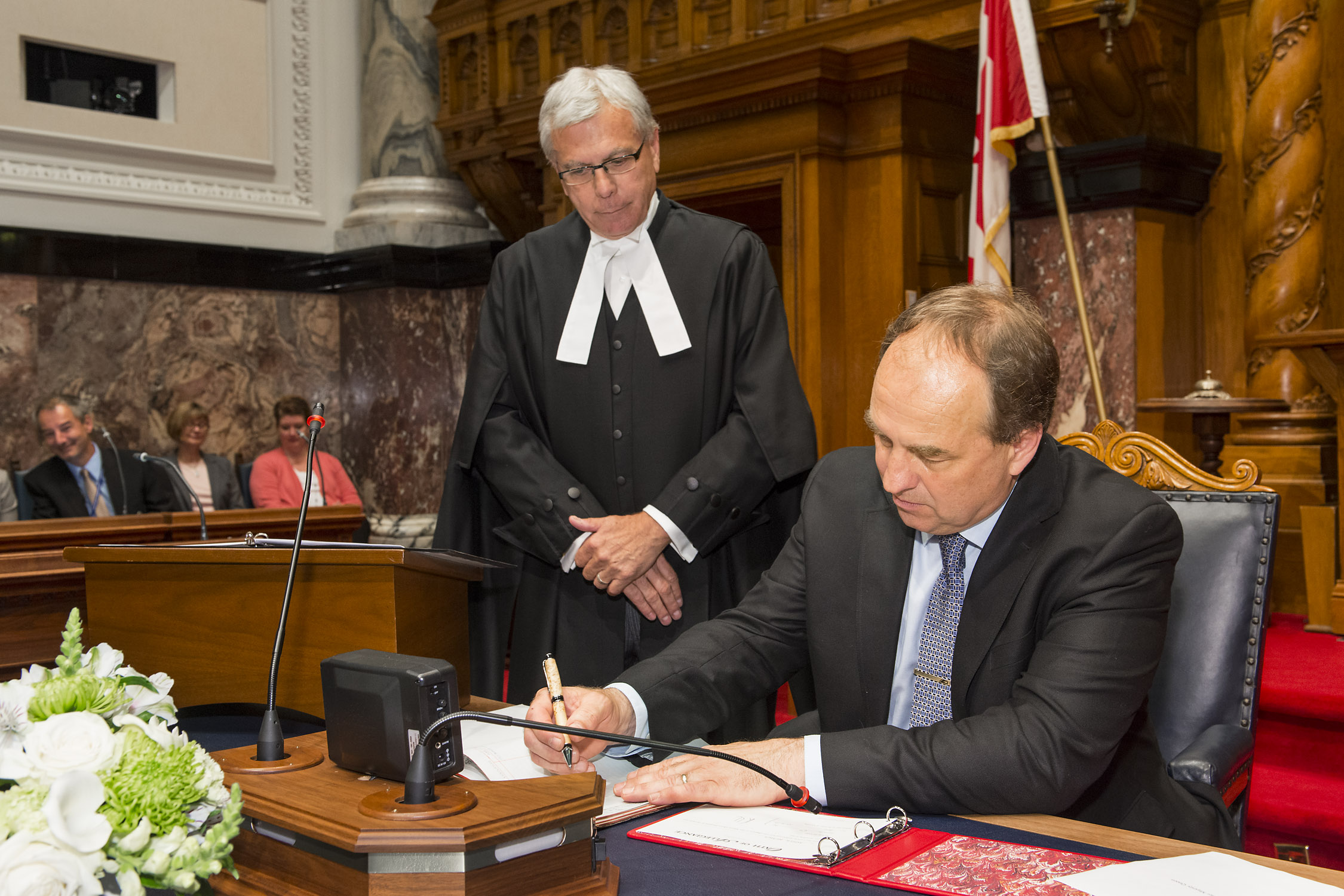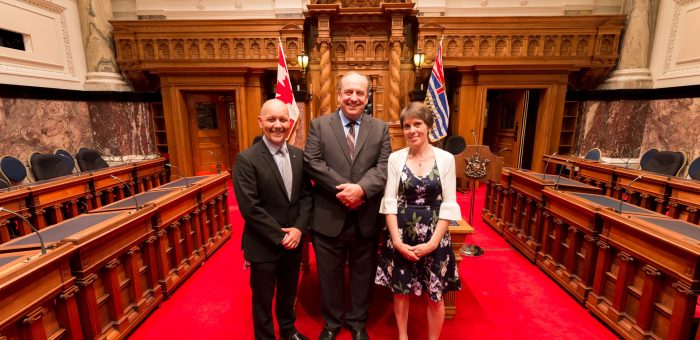Issues Blog
Speaker’s report raises serious questions about relationship between Clerk’s office and BC Liberals
The release of the Speaker’s bombshell report yesterday has sent a shockwave across British Columbia. It identified a culture of entitlement and alleged a systemic pattern of fiscal wrongdoing in the BC Legislature. The report’s release will undoubtedly undermine public trust and frankly raises more questions than it has answered.
In releasing the report, the Legislative Assembly Management Committee unanimously approved four motions:
- The Acting Clerk undertake to develop the scope and terms of a comprehensive financial audit, to address matters contained in the report by the Speaker, for the consideration and approval of the committee. Once the committee has approved the scope and terms of the audit, an Auditor General from another Canadian jurisdiction shall be invited to undertake the work. The resulting audit report shall be made public.
- The Acting Clerk develop a framework for a workplace review of the Legislative Assembly departments, subject to criteria to be determined by the committee, in order to address matters raised in the report by the Speaker.
- The committee urge all House Leaders to consider the serious allegations raised in the report by the Speaker, invite a written response by the Clerk and Sergeant-at-Arms by Friday, February 1, and determine what action, if any, the Legislative Assembly should take with respect to the motion adopted on November 20, 2018, regarding the Clerk and Sergeant-at-Arms.
- The committee authorize the public release of the report by the Speaker.
The serious nature of these motions cannot be underestimated.
First, the committee will be inviting an auditor general from another province to undertake a comprehensive audit of Legislative finances. This unusual step bypasses British Columbia’s Office of the Auditor General.
Second, a framework will be set up for a workplace review. Presumably such a review is designed to ensure hiring policies and practices are put in place to protect workers from fear of retribution and unjust terminations (as raised repeatedly in the report).
Third, upon receiving a response from the Clerk and Sergeant at Arms, the committee will recommend to the Legislative Assembly a course of action. Presumably, this means they will recommend to the Assembly whether the Clerk and Sergeant at Arms should be reinstated, terminated, or continue on leave with or without pay. In light of the serious nature of the allegations in the report, it’s difficult for me to imagine any scenario that leads to the Clerk and Sergeant at Arms being reinstated.
But the story does not end here.
I’ve read the report through several times and I am at a lost as to who I can now trust in the BC Legislature. On page 14 of the report, the Deputy Sergeant at Arms is quoted as saying “I’m going to lose my job over this one”, referring to an alleged “theft” of more than $10,000 in liquor that he was aware of. The Deputy Sergeant at Arms, who is now serving as the Acting Sergeant at Arms, is also quoted on page 14 in alleging misappropriation of legislature funds by the Clerk to purchase a wood splitter. Furthermore, on page 16, questions arise as to whether or not there was a cover-up concerning alleged improper expense claims by a BC Liberal MLA.
I’m left wondering what, if any, financial oversight was present with respect to the approval of the outrageous expense claims detailed in the report.
Perhaps most disturbing of all are the questions that arise concerning the Clerk’s relationship to the BC Liberals.
On page 9, the Sergeant At Arms is quoted as suggesting that the Clerk was “not impartial and that he was in fact very close with the BC Liberal Party”. Pages 15-17 of the report detail an alleged coverup of inappropriate expenses submitted by a BC Liberal MLA. The Clerk is quoted as saying that “I spoke with Kate and told her to rein Gary in and put a stop to this, otherwise we will all wear it”. Later, the Deputy Clerk and Clerk of Committees is said to have told the speaker that the Clerk had gone to Vancouver to meet with Geoff Plant about how to “rein in Gary and ensure he wouldn’t be conducting investigations in the future”. And then there are the meetings detailed in the tables spanning pages 36 to 38.
This table details 39 entries of in-province trips taken by the Clerk since March 2017 for individual meetings. Four of these meetings involved former BC Liberal Speaker Bill Barisoff; four were with former Premier Christy Clark (all of which occurred after she was no longer Premier); fourteen were with former BC Liberal MLA Geoff Plant; two were with Liberal MLA Mike de Jong; one was for a meeting at the Liberal party offices. The obvious questions that arise are: 1) what were these meetings about?; 2) how were they justified as being associated with legislative business.
Another very concerning allegation appears on page 19 of the report. Here, the Clerk is quoted as saying: ‘that he had “so much dirt on the Liberals” and that he could threaten to “stop paying their legal bills” or “quit paying their severance payments”’. Answers are clearly needed to more obvious questions that arise: 1) what dirt?; 2) what legal bills?; 3) what severance payments.
And then there is what the speaker described on page 48 as “the most comprehensive analysis of the Retirement Allowance to date” which he suggested “appears to have been conducted in January 2014 by the Legislative Assembly’s then-Director of Human Resources, Jo-Anne Kern, following the publication of the John Doyle audit report and at the request of then-Speaker Linda Reid.” What’s disturbing is that this report appears to have either been removed, destroyed or not filed appropriately.
At 10:00am today I held a press conference in which I provided our response to the Speaker’s report. Below I reproduce the statement that I used in the press briefing. The entire press conference was filmed on Facebook Live.
Media Statement
- I have now had a chance to read the report in its entirety and I have to say, the allegations in this report point to a culture of entitlement and were sickening to read.
- I want to thank the speaker for the immense public service he has provided in bringing forward his concerns in such a detailed manner. As the first truly independent Speaker he has shown a willingness to speak to truth to power that can be sorely missing in politics.
- I also want to thank the whistleblowers who can forward to speak with the Speaker. This takes courage and willingness to look out for the broader public interest.
- Beyond the specific allegations of this report, there is another deeply concerning fact: these actions were allowed to go on for an extended period of time with documented efforts to conceal what was happening
- We have reported instances of people having their contracts terminated for trying to raise concerns about these practices;
- We have allegations that documentation which raised concerns disappeared from the previous Speaker’s vault – only made public because someone was willing to come forward with a personal copy;
- We have allegations that there was pressure to quash investigations into these practices.
- The culture that at best turned a blind eye and at worst actively concealed these actions is the same culture that oversaw the escalating crisis of money laundering in BC.
- These issues don’t happen in a vacuum. They are enabled by a culture that chooses to not ask questions and treats power as an entitlement to be protected – rather than as public responsibility to be stewarded.
- Half of all working Canadians are living paycheque to paycheque. BC has one of the highest poverty rates in the country. While we must still view these as allegations, if true, it is abhorrent the officials in charge of this public institution would feel entitled to live lavishly with taxpayer money – expensing mother of pearl cufflinks when many British Columbians can’t even afford breakfast.
- We will be taking a very close look at what steps can be taken to ensure this legislature has additional checks and balances, and that power is not something vested simply in a small group of individuals.
- Separately, I also must raise my deep misgivings about the relationship detailed in this report between the Clerk of the legislature and the BC Liberal party.
- The office of the Speaker and the Clerk must be counted on to be independent from the political machinations that can take place in this building.
- When reports that raise worrying concerns disappear, when there is consistent and unexplained travel by non-partisan officials to political offices and elected officials, when the new Speaker is warned that the Clerk has a deep relationship with the BC Liberal Party – and most importantly, when a new, and truly independent speaker is able to immediately reveal extensive allegations of abuse, tough questions must be asked.
- As we stated yesterday, our caucus will do whatever it takes to ensure that trust can be restored and that British Columbians get answers to the numerous unanswered questions that are raised by this report.
Speaker vindicated: Shocking allegations of systemic wrongdoing in BC Legislature
Today the Legislative Assembly Management Committee (LAMC) approved the release of the Speaker’s 76 page report entitled:
Report of the Speaker Darryl Plecas to the Legislative Assembly Management Committee concerning allegations of misconduct by senior officers of the British Columbia Legislative Assembly.
In this report the Speaker provides exhaustive details as to what led LAMC to recommend to the House that the Clerk and Sergeant at Arms be placed on administrative leave. The report raises serious questions concerning the conduct of a number of senior Legislative officials, and members of the official opposition.
Below I reproduce our initial media statement. I will be offering further, more detailed, comments shortly.
Media Release
B.C. Green Caucus statement on the release of the Speaker’s report
For immediate release
January 21st, 2019
VICTORIA, B.C. – Andrew Weaver, leader of the B.C. Green Party, issued the following statement in response to the report written by Speaker Darryl Plecas and released publicly by the all-party Legislative Assembly Management Committee (LAMC):
“The report released today makes serious and shocking claims that have significant implications for public trust in our democratic institutions.
“The B.C. Green caucus fully supports the motions passed unanimously today by the LAMC. These are crucial first steps towards restoring integrity and faith in our provincial government.
“As a caucus we have made democratic integrity a major focus, championing issues such as lobbying reform and campaign finance reform. The people of our province deserve public institutions they can trust. We have never been more committed to seeking the truth and restoring our democracy for the benefit of all British Columbians.
“We will do whatever it takes to ensure that this trust is restored and that British Columbians get answers to the numerous unanswered questions that are raised by this report.
“We will have further comments in the near future once we have had a chance to review this report in detail.”
The full report can be viewed here.
-30-
Media contact
Stephanie Siddon, Acting Press Secretary
+1 250-882-6187 | stephanie.siddon@leg.bc.ca
On the botched rollout of BC NDP’s Speculation and Vacancy Tax
Residents across the Lower Mainland, the Capital Regional District, Nanaimo and  Kelowna/West Kelowna are beginning to receive letters from the BC NDP government concerning the Speculation and Vacancy Tax. To the surprise of most, every property owner registered on title will have to fill in a declaration to claim exemption from the tax. Widespread concern has emerged that this form of “negative billing” will lead to myriad problems. I agree.
Kelowna/West Kelowna are beginning to receive letters from the BC NDP government concerning the Speculation and Vacancy Tax. To the surprise of most, every property owner registered on title will have to fill in a declaration to claim exemption from the tax. Widespread concern has emerged that this form of “negative billing” will lead to myriad problems. I agree.
Anyone following BC politics will know that the BC NDP’s Speculation and Vacancy Tax has been, and continues to be, extremely controversial. Shortly after signalling, in February 2018, their intent to introduce tax legislation later in the Fall, it became abundantly clear to me that the BC NDP hadn’t thought the tax measure through. I was very critical of the lack of details and the fact that the tax’s interpretation by the Minister of Finance seemed to be changing on a near daily basis.
I was unconvinced that the BC NDP knew what outcome they were trying to achieve with their tax measure. I arranged for briefings; I met with the Minister of Finance where I outlined my many concerns; I posed questions to her in the legislature (e.g. in Question Period); I met with numerous stakeholders. And I personally responded to many hundreds of emails from around British Columbia.
The BC Green efforts started to pay off. In late March government released a second intentions paper outlining a series of thresholds, exemptions and refinements to the geography of affected areas. While I was supportive of these changes, there was still much work that needed to be done.
And so I arranged for more briefings; I again met with the Minister of Finance to once more outline my ongoing concerns; I posed questions to her in the legislature (e.g in Budget Estimates); I met with numerous other stakeholders. And I personally responded to many more hundreds of emails from around British Columbia.
On June 27 I published online an email that I had started to send out to people about my ongoing concerns over the Speculation Tax. Over the summer I once more arranged for more briefings; I met with the Minister of Finance; I met with numerous other stakeholders. And I personally responded to many more hundreds of emails from around British Columbia.
When the BC NDP finally introduced Bill 45: Budget Measures Implementation (Speculation and Vacancy Tax) on October 16, 2018, I acknowledged that they’d gone a long way towards addressing many of the unforeseen negative consequences that I’d raised with them. Yet there were still several key aspects of the bill that caused my BC Green Caucus colleagues and I to reiterate our ongoing concerns.
Prior to the introduction of the Bill, the BC NDP told our caucus that they viewed Bill 45 as a confidence measure. They argued that it arose from a flagship “budgetary policy” announced as part of the 2018 budget. Our position was that our Confidence and Supply Agreement was very clear:
“While individual bills, including budget bills, will not be treated or designated as matters of confidence, the overall budgetary policy of the Government, including moving to the committee of supply, will be treated as matters of confidence“
As you might imagine, a number of (at times difficult) meetings followed with the BC NDP. Concurrently, my caucus colleagues and I united behind the notion that the only way the BC NDP would secure our collective votes was if, and only if, they supported three further amendments (which were subsequently drafted by Legislative Drafters). These amendments ensured that:
- Mayors from affected municipalities would be part of an annual review process with the Minister of Finance that required the Minister to provide metrics that justified keeping the speculation tax in place in their community;
- revenue raised by the tax would be used for housing initiatives within the region it came from;
- the speculation and vacancy tax rate for all Canadians was the same – this brought the rate for non BC-resident Canadians down from 2.0% to 0.5%.
The amended Speculation and Vacancy tax bill eventually passed in the BC Legislature, but not before I was able to ensure that the Minister provide further clarification on record as to its intent.
At this point it’s important to note that the BC Greens take the enormous responsibility British Columbians have granted us very seriously. Our role in the BC Legislature is to ensure stability, yet accountability. And we did just that. We ensured that the BC NDP government did not fall in their declared confidence measure while at the same time working tirelessly to ensure that many of the unforeseen consequences of the poorly-thought-through Speculation and Vacancy Tax were mitigated.
Several times in our meetings with the Minister and/or her staff, or during the briefings with the Ministry, I raised concerns and questions about government’s proposed negative billing during the implementation of the tax (the BC Liberals were apparently asleep at the wheel and didn’t realize this was involved with its implementation). I suggested that some people might get confused and pay the tax even though they didn’t need to. My concerns were dismissed as I was told that the process was going to be easy and transparent, like what is already in place for people claiming the Homeowner Grant.
Sadly, this has not turned out to be the case and the processes to claim a Homeowner Grant and declare an exemption from the Speculation and Vacancy Tax remain separate. And so, while I am not surprised by the public reaction to the rollout of this tax, I am surprised that the BC NDP hadn’t anticipated this.
The BC Greens remain of the opinion that the BC NDP’s Speculation and Vacancy tax is bad public policy.
 We believe that a better way forward would be to enable all local governments (not just Vancouver) to introduce vacancy taxes if they felt it was in their community’s interest. At the same time, a speculation tax could be applied exclusively to properties owned by offshore individuals and entities, the Bare Trust loophole could be closed as was done in Ontario, and a flipping tax could be applied when the same property is sold multiple times in a short time period.
We believe that a better way forward would be to enable all local governments (not just Vancouver) to introduce vacancy taxes if they felt it was in their community’s interest. At the same time, a speculation tax could be applied exclusively to properties owned by offshore individuals and entities, the Bare Trust loophole could be closed as was done in Ontario, and a flipping tax could be applied when the same property is sold multiple times in a short time period.
The BC Greens understand the importance of tempering exuberance in the out of control housing market. In fact, we specifically called for a New Zealand-style ban on off-shore purchases as per our call for bold action. We also outlined numerous other measures that could be implemented.
Moving forward, our caucus will continue to ensure stability, transparency and accountability in the BC Legislature.
Statement on electoral reform referendum results
Today Elections BC released the results of the referendum on proportional representation. The referendum failed with 61.3% (845,235) supporting the current First Past the Post (FPTP) voting system and 38.7% (533,518) supporting a form of proportional representation. Below is the press release my office issued in response to the news.
Media Release
Weaver statement on electoral reform referendum results
For immediate release
December 20, 2018
VICTORIA, B.C. – Andrew Weaver, leader of the B.C. Green Party, released the following statement regarding the results of B.C.’s referendum on electoral reform. Elections B.C. announced today that British Columbians voted to retain the current First Past the Post system.
“We campaigned on proportional representation because representative democracy is one of the 6 core principles of the B.C. Green Party,” said Weaver.
“While we are disappointed with this result, we respect British Columbians’ decision to retain the current First Past the Post system.
“I thank Elections BC for their work administering this referendum. They provided British Columbians with clear, impartial information and accessible opportunities to vote.
“Over the course of the referendum, I had the opportunity to speak with countless British Columbians about their democracy. I was inspired to meet so many citizens who care deeply about modernizing our system of governance so it better reflects the will of the people. I thank everyone who volunteered, voted and worked on the campaign.
“The B.C. Greens remain committed to the principle of representative democracy. As part of this file we have already banned big money and reformed the lobbying industry. We will continue to champion policies that will strengthen B.C’s democracy and make it more responsive to and representative of the people of B.C.”
-30-
Media contact
Jillian Oliver, Press Secretary
+1 250-882-6187 | jillian.oliver@leg.bc.ca
Right to Roam and the BC Supreme Court
In an Epilogue to a recent groundbreaking ruling, B.C. Supreme Court Justice Joel R. Groves has urged the government to open up public access to lakes around the province.
It is an issue I advanced in the legislature with a Right to Roam private member’s bill tabled twice in 2017.
In my view, this recent ruling and the clear words spoken by Justice Groves underline the need for a law or regulations that will ensure future governments, unlike those previously, fulfill their duties to protect access to public land.
The BC Supreme Court has ruled in favor of public access to lakes on the Douglas Lake ranch, but the decision has implications far, far beyond that. All the lakes in B.C. are owned by the people – and the government needs to act to ensure access to those lakes.
In his decision, issued Dec. 7, Justice Groves ruled in favor of the Nicola Valley Fish and Game Club, which had challenged the Douglas Lake Cattle Company’s right to lock a gate on the road to Minnie Lake and Stoney Lake.
The Club argued the road was public and that the Douglas Lake Cattle Co. had illegally restricted access. The court agreed.
The ruling is expected to open up public access not just to Minnie and Stoney, but also possibly to other lakes on the sprawling Douglas Lake ranch, near Merritt.
In his ruling Justice Groves chastised a succession of provincial governments for allowing the public road on the ranch to remain locked for many years, despite pleas from the public for access to Minnie and Stoney lakes.
“All governing parties have shown a lack of action to enforce the public good,” the judge stated in his ruling.
“What I am saying is that there is plenty of blame upon all politicians and all political parties who have governed this Province since 1990.
“As such, I am not pointing a finger at any particular government individual but, again, it is most unfortunate that all governments holding the obligation of the public trust have failed to take any actions to prohibit what was an illegal obstruction of a public road by a corporate entity, for its own benefit.”
Justice Groves stressed that the government should work to ensure the public has access to lakes around the province.
“This case is about access to lakes,” he stated. “As I say in my reasons . . . it makes no sense to me that the Crown would retain ownership of lakes, only for there to be no access because someone owns initially through Crown grant, or subsequently by purchase, all the lands surrounding the lake,” stated Justice Groves.
He said the government should act to resolve the public access problem now before it gets worse.
“The remedy I am urging on government is this. First off, look at the Trespass Act…Secondly, if you own the lakes of the province, which you do, can you not regulate access? There really is no point to ownership otherwise. The ownership of lake beds is, no doubt in large part, intended to be collectively held for the benefit of all citizens of the province. As that is the case, consider doing what other jurisdictions have done and guarantee access to this precious public resource,” said Justice Groves.
That is precisely what I sought to advance last year when I introduced the Right to Roam Act. The bill aimed to reestablish the rights of British Columbians to access public lands, rivers, streams, and lakes, and to use these spaces to fish, hike and enjoy non-motorized outdoor recreation. Rather than expecting it to pass as drafted, I hoped my bill would further this important discussion in the BC legislature. I would be keen to see other MLAs weigh in on this issue as well.
This is not, and should not be a partisan issue. The government has a responsibility to manage crowns lands to the benefit – and critically the access – of all British Columbians.
It is time the BC government took steps to ensure that the public has the right to access lakes, rivers and streams on public lands. I’ve said it before and now the court has said it. It is time to start unlocking the gates.








